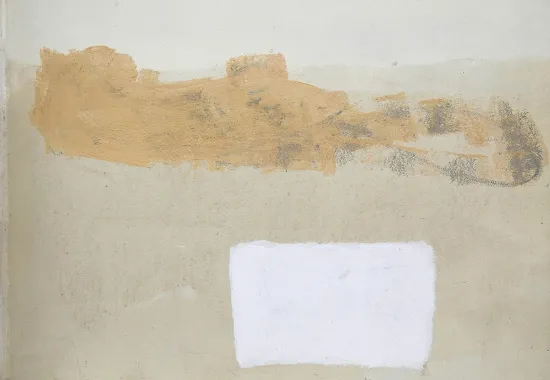On Composing “Shameeka” and “Shift Reports: Skilled Care”

The question, O me! so sad, recurring—What good amid these, O me, O life?
Answer.
That you are here—that life exists, and identity;
That the powerful play goes on, and you will contribute a verse.
Walt Whitman, Leaves of Grass
“Shameeka” and “Shift Reports: Skilled Care,” which I’m so pleased appear in the Fall 2016 issue of North American Review, share two “firsts”: they are the first poems I completed and published after my recent collection, Quiet City, came out in spring 2015, and they are the first poems I completed, shared at a reading, and published following my mother’s death the preceding winter.
I wrote a good deal when my mother was sick. She became sick suddenly, feeling unwell in November of 2014, and on December 2 was diagnosed with stage-four lung cancer and given months to live. Because she was eighty-seven—and because the prognosis was grim even if she did try chemo, surgery, and radiation—she chose not to treat the cancer. She preferred to die at home if she could, with help from my brother and me and our families, as well as the mostly wonderful nurses of Hospice. I lived in Omaha at that time; my mother down in Coconut Creek, Florida. When we got the news, I was, luckily, almost done with the semester and scheduled to begin a sabbatical that spring, so I was able to live with her for most of those terrible last weeks of her life. It is difficult to describe that time—that’s why I needed to write the poems and will write others—but one word that fits is “exhausting.” When I say I wrote a good deal, I don’t mean I sat down to a desk and spent hours musing, composing, and revising, as is my usual practice. I mean I stole minutes and rapidly made notes on my phone on Evernote, or texted my husband or brother, or my children, my closest friends. From time to time I did have the energy to write a bit longer in a small notebook, but mostly I jotted notes—a few sentences, or a paragraph at a time.
Some may wonder, and I wouldn’t blame them, if it wasn’t a bit coldhearted to make notes while caring for my mother, but it didn’t feel that way to me. I needed to write, and I wanted to remember in the detailed way that nothing but writing allows. Was I thinking of making poems? Certainly of the possibility. And was that cold? I hope not. I console myself with the thought that my mother, a painter herself, understood well the need to make art out of our suffering, and that she would want me to write the poems. And, too, there is the undeniable truth as my friend, poet Betsy Sholl, has reminded me of Whitman’s observation that poets are always observing, trying to make sense of things, simultaneously “in and out of the game.” For good or ill, it’s what we do. While I was helping care for my mother, the proofs for Quiet City arrived. My wonderful editors, Ben Furnish and Michelle Boisseau, made it clear there was no rush, but I needed some work, and the moments I spent reading and correcting proofs were among the few when I felt like myself, felt sane, and remembered I had a connection to the world. Those weeks living in my mother’s small condo, which had become as much hospice center as home, I felt I understood what soldiers mean when they speak of “the world” vs. the combat zone. The world seemed far away and unreal; working on the proofs helped me recall something other than sickness and sorrow. My mother was thrilled, and though she was too weak to read, she asked me to read the manuscript aloud to her, and so I did, cover to cover. She listened with pleasure, commenting on this or that line, an image, the sounds. I didn’t know that Shameeka, one of our nurses, listened from the next room. When we were finished, she came in to tell me how much she liked the poems and to say that she, too, was an artist. And then she sang. There, at the foot of my mother’s hospital bed, amid the clutter of drugs and diapers, she sang “At Last” acapella, exactly as I’ve described it in the poem. My mom’s face, eyes closed as she listened, was suffused with joy.
My mother died on January 20, 2015, and I returned to Omaha soon after. I was exhausted, grief stricken, enormously glad to be home. I’d come to loathe Florida—its heat and sunshine and old people with their walkers and health aides. I don’t know if I’ll ever be able to go back there. I can’t remember how long it was before I began to write again, but at some point, I printed out all my Evernotes, texts, and emails, and read them over. They amounted to some thirty pages. “Shameeka” came first and almost wrote itself. “Shift Reports” came harder. I kept wrestling with it, but it remained inert on the page, until, preparing for a fall class, I read Phil Brady’s Poems and Their Making: A Conversation and came upon poet Harvey Hix’s essay, “That White Shirt,” in which he describes working in rispettos. When stuck with a poem, I frequently try to “hammer it into form,” to use Maxine Kumin’s phrase, and the structure and simplicity of the rispetto form—eight-line stanzas of eleven-syllable lines—appealed to me. When I looked up the translation and discovered the name means “respect,” I felt a shiver at its rightness. As I worked in rispettos, the poem came together.
I am, especially when it comes to my work, an “overthinker”—more than one teacher has told me that along the way—and this habit can lead to long blocks. After the publication of Muse, my first full-length collection, I wanted badly to write poems unlike anything I’d written before, and I was stuck for a long time. I promised myself that on the publication of Quiet City I’d avoid the pitfalls of overthinking. For good or ill—in terms of the finished poems and my own perhaps foolish ambitions for my work—I wrote “Shameeka” and ”Shift Reports” out of an urgent need to make some small something out of an experience too powerful to describe except in poems, and as a way of remembering and honoring my mother, whose courage and love at the end were a marvel.
Jessica Mercado is a native New Jerseyan and a recent graduate of Parsons the New School for Design in New York City with a bfa in illustration. Jessica is not only interested in drawing people, but also how other people can affect them. Her motive is to create narrative illustrations that are thought provoking, sensory driven, and pure. With her sense of color and lines, Jessica expresses a sense of whimsy and energy that is effortless and never overwhelming.
Jessica is always open for commission, big or small, and you can view her work on instagram @jessmerco, or on her website, www.jessmercado.com. All inquires can be sent to Jessica@jessmercado.com.
Recommended
Mercy
Eclipsing
Psychic Numbing






